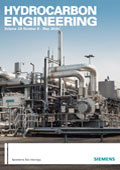Editorial comment
The eruption of Icelandic volcano, Eyjafjallajokull, and its massive ash cloud caused the closure of airspace over much of Europe, which has left thousands stranded all over the world. Whilst ‘rescue’ operations are now underway and flights have resumed, it is going to be a slow process with people being forced to make a long journey home by land and sea or wait weeks for an available flight. However, the ash cloud has not just affected travellers, it has also left ‘Russia’s super rich lamenting a shortage of oysters and peaches, whose deliveries have been cut by the Icelandic volcano’, according to a Reuters UK report. This report highlights the importance of imports, even of oysters and peaches, and brought the questions of dependence and security of supply to mind.
Register for free »
Get started now for absolutely FREE, no credit card required.
In 2009 Russia cut off the supply of natural gas to the Ukraine over a pricing dispute and at the beginning of this year the Russia-Belarus oil dispute led to Russia cutting off the oil supply to all Belarusian refineries. Both of these events were a significant threat to the supply of oil and natural gas to the whole of Europe as Russia is the world’s largest oil producer and all exports, a fifth of the world’s total, go through pipelines in the Ukraine and Belarus. These events, and similar, highlight Europe’s dependence on Russian oil and gas. Such a high reliance on one country is, obviously, not wholly favourable however, could this dependency be diversified?
Saudi Arabia, Venezuela and China have been in the news lately as all three countries are attempting to minimise their dependence on one specific oil market and illustrate that reliance on one country can be overcome. Saudi Arabia is constantly reinforcing its energy ties with China as both endeavour to reduce dependence on the US. China is now the biggest buyer of Saudi oil; approximately 1 million bbls of oil are imported to China from Saudi Arabia a day, and two way trade between the countries hit approximately US$ 40 billion in 2008. Also, Saudi Arabian companies are investing more heavily in oil and petrochemical projects in China. Venezuela has also been securing its friendship with China as President Hugo Chávez has secured a loan from the country as it seeks to diversify the sale of Venezuelan oil from the US. China will lend Venezuela US$ 20 billion, which will be used to build power plants and maintain the country’s deteriorating infrastructure. As China has now become the world’s third largest oil importer and the demand for oil is constantly on the rise the country is keen to secure supplies from a range of sources and, in light of this, Venezuela will repay the loan with Venezuelan crude.
Obviously, obtaining a secure source of supply (whether it be oil or oysters) is important to all nations and especially countries such as China that are expanding very rapidly. With regards to reliance, from the above discussion it can be argued that the key to security of supply is to not become reliant on one supplier but to secure a number of sources allowing diversity and avoiding dependence.
In this issue the regional report ‘Movement in the Middle East’ comes from Nancy Yamaguchi, Contributing Editor, and looks at the Middle Eastern refining industry with a particular focus on Iraq (pp. 12). This issue also includes the annual World Review, a collection of contract news released in the last 12 months from within the downstream hydrocarbon processing and LNG industries (pp. 58).

